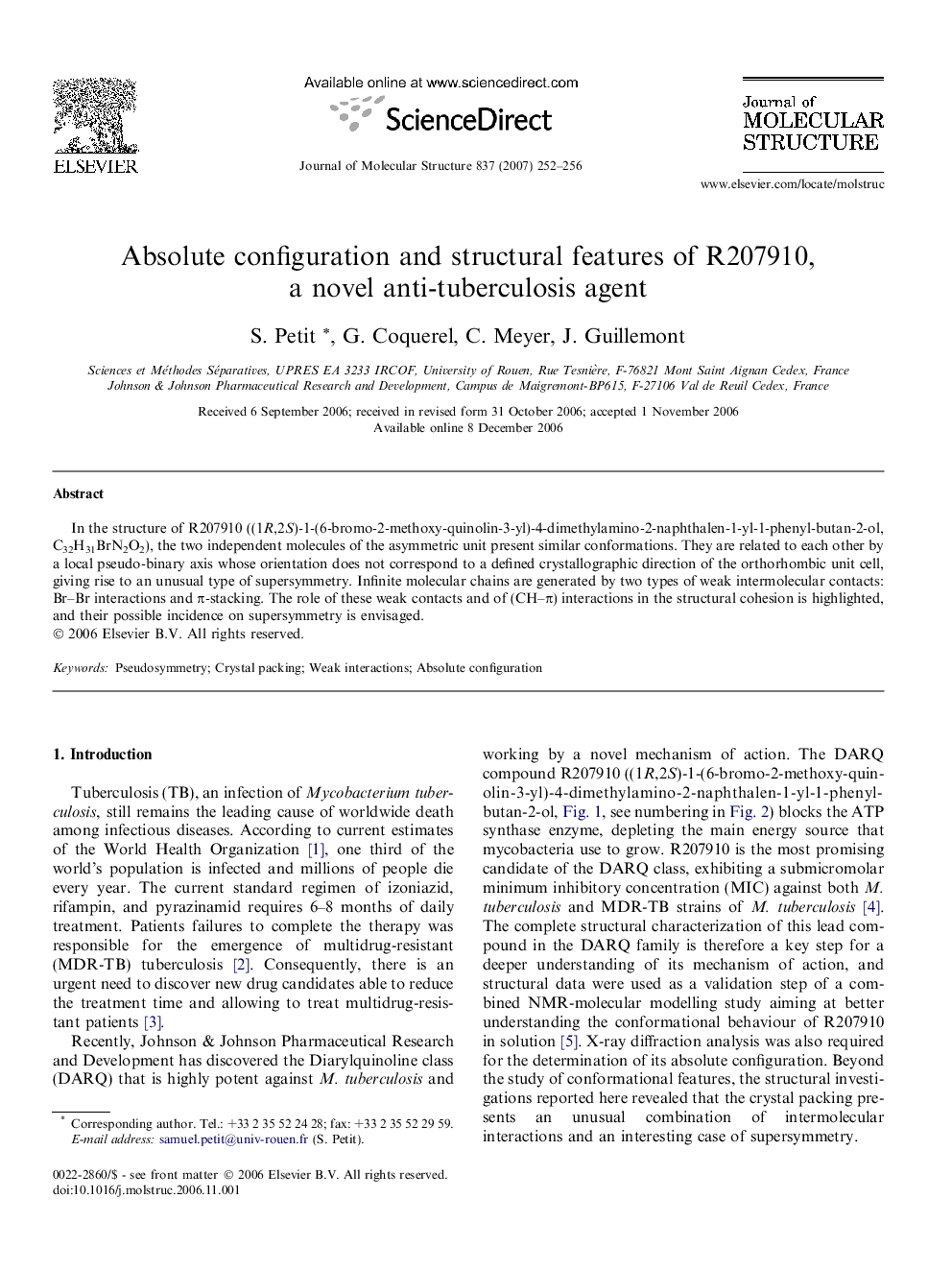| Article ID | Journal | Published Year | Pages | File Type |
|---|---|---|---|---|
| 1407931 | Journal of Molecular Structure | 2007 | 5 Pages |
Abstract
In the structure of R207910 ((1R,2S)-1-(6-bromo-2-methoxy-quinolin-3-yl)-4-dimethylamino-2-naphthalen-1-yl-1-phenyl-butan-2-ol, C32H31BrN2O2), the two independent molecules of the asymmetric unit present similar conformations. They are related to each other by a local pseudo-binary axis whose orientation does not correspond to a defined crystallographic direction of the orthorhombic unit cell, giving rise to an unusual type of supersymmetry. Infinite molecular chains are generated by two types of weak intermolecular contacts: Br–Br interactions and π-stacking. The role of these weak contacts and of (CH–π) interactions in the structural cohesion is highlighted, and their possible incidence on supersymmetry is envisaged.
Related Topics
Physical Sciences and Engineering
Chemistry
Organic Chemistry
Authors
S. Petit, G. Coquerel, C. Meyer, J. Guillemont,
